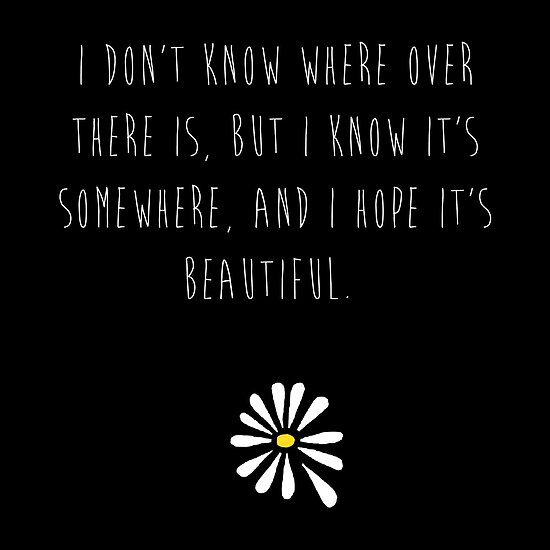Looking for Alaska is a
riveting novel about the adventures of Pudge, the Colonel, and Alaska on the
campus of Culver Creek Preparatory School. Self-destructive, Alaska Young,
completely unraveled during one late night of drinking, in which led to her
tragic death in an unforgiving car accident. Pudge and the Colonel - left
broken themselves – attempted to piece together the events leading up to her
decision to drive off campus and leave. Was it Suicide? Were they the ones at
fault? Where was she going? These were all questions the asked relentlessly throughout
part two.
The readers, the
fanatics, the enthusiasts are now able to experience this hunt and actually
look for Alaska themselves through geocaching.
ge·o·cach·ing
verb
1.
the recreational
activity of hunting for and finding a hidden object by means of GPS coordinates
posted on a website.
Objects
and clues will be placed in each location leading up to the solution of Alaska’s
death. The readers can take however much time necessary to complete the
scavenger hunt. For example if they wish to experience this investigation as
they read the book. This is available. The first location starts with the first
and most devastating of events from part two: the realization. During this
event the Eagle comes to Pudge and the Colonel’s room to tell of the news from
the previous night, referring to Alaska’s terrible death, and how sorry he was from
the line of events. So the reader will start out on the Looking for Alaska website
and listen to an audiotape of the Eagle and his news. Then, the line of events
starts there, a set of coordinates will be displayed below the audio file, and
finally the journey has begun.
During
these line-of-events the reader will go to all of the places that Pudge and the
Colonel went to: the funeral, Alaska’s dorm room, etc. In each location there
will be a sheet of paper stating the GPS coordinates for the new location. At
every location there will be a wooden box with quotes and items inside that
were found in that location from the book. For example, when the reader goes to
Alaska’s dorm room, there will be a multitude of items. One of the items will
be Alaska’s favorite book by Simon Bolivar who’s last words were, “How will I
ever escape this labyrinth?”. Finally at the end - after all the clues have
been found - the reader will have the satisfaction of going to the site where
Alaska passed, whether it be on foot or by car, the reader decides. At this
location a mass amount of quotations from before Alaska’s death and objects in
her memory will be found. In conclusion to the journey on single excerpt from
after her death will be found, larger than the others, “I would never know her
well enough to know her thoughts in those last minutes, would never know if she
left us on purpose. But the not-knowing would not keep me from caring, and I
would always love Alaska Young, my crooked neighbor, with all my crooked heart.”
In
between every event you have the choice of either attending class or skipping –
to get the full effect of the novel. The only class listed is Religion’s Class.
Every class period there will be about a five to ten minute lecture about life
and the questions surrounding it. Most will be references from the book, but
other concepts are extras that have been mentioned in other John Green books. A
couple of the contemplative questions that will be asked during this worldwide
search for Alaska includes, “What happens when we die?” along with the question
“Without pain, how could we know joy?”. At the end of the scavenger hunt you will be left
with a slip of paper with a single essay question: “how will you personally
escape this labyrinth?” You have the option to write. You have the option for
discussion. If you decide to write an essay you can share it with the world,
send it to John Green, or just keep it for yourself.
Looking
for Alaska is a very contemplative book. It brings about many questions and
thought provoking statements. This geocaching experience is meant to encourage
a higher level of thinking and create a journey for the reader as if they were
actually in the book. The interactive aspect of it will
draw in new interest for the book itself and to John Green book’s as a whole.
